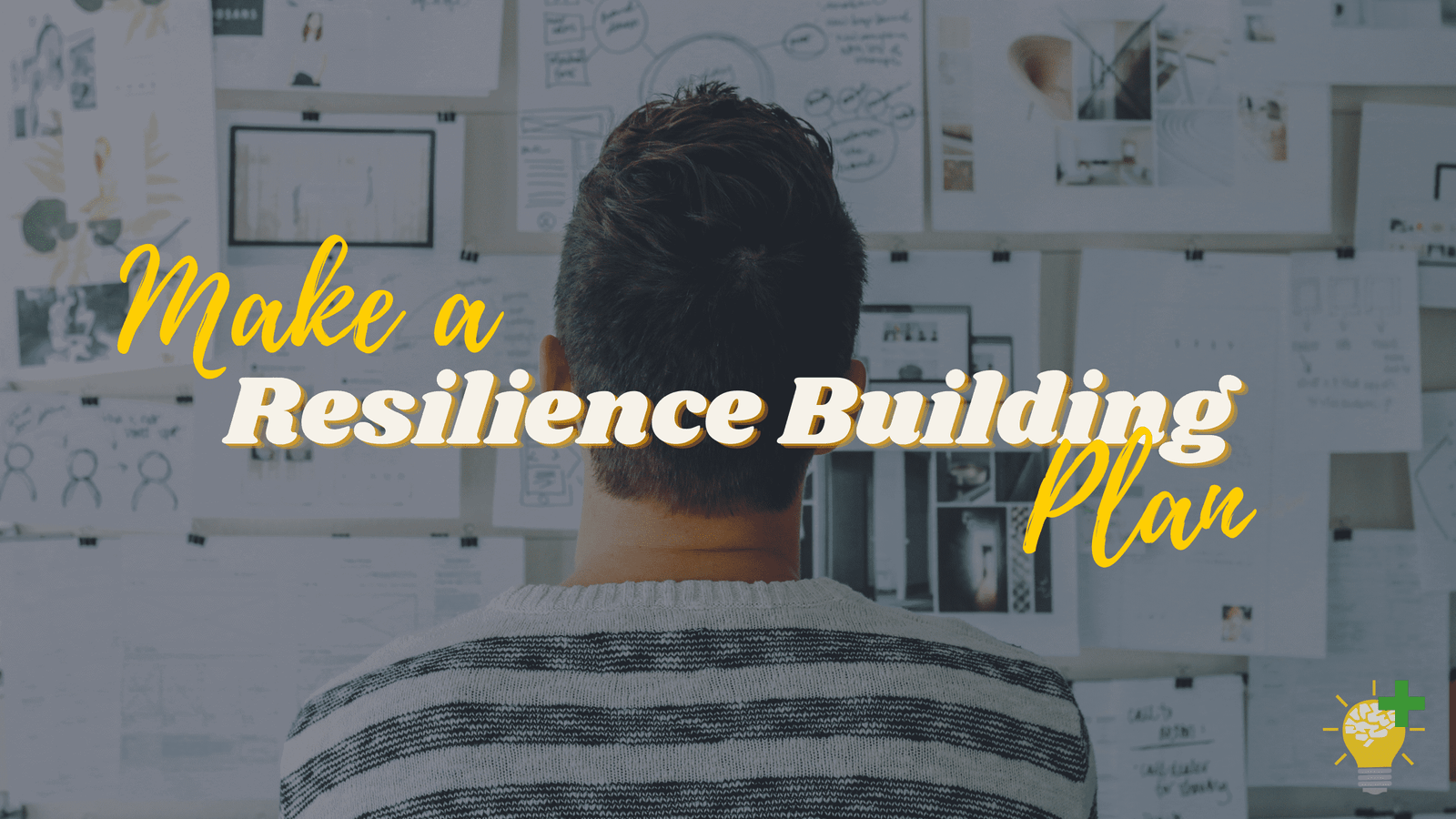How resilient are you? Are you able to bounce back from setbacks or failures? What makes you resilient?
Personal resilience refers to the ability to recover from adversity. This means being able to cope well with stressors and challenges. Resilience is important because it helps us deal with life’s inevitable ups and downs.
Resilient people tend to be optimistic, flexible, and open to new experiences. They also tend to be emotionally intelligent and self-aware.
Let’s dig into several personal resilience examples.
Personality Of Resilient People
Resilient individuals have a particular profile, in my opinion. They tend to share certain traits that you and I can emulate to become more resilient.
There’s nothing innately different between a person who is resilient vs. one who is not. It is simply that they took the opportunity to cultivate traits that we all can.
Okay, let’s look at each unique trait of a resilient person.
1. Optimistic
A resilient person has a positive outlook on life. Optimism is something that comes naturally to them. As humans, we’re not particularly wired to see the good side of things. However, we can always look for opportunities to improve our lives and those around us.
This is why optimism is so important. When you’re optimistic, you’ll think positively even when things aren’t going your way.
You will also be more likely to take risks, which could lead to success in all areas of your life.
2. Adaptable
A resilient person can adapt to change. Change is inevitable, but some people struggle with adapting to it.
When faced with a challenge, resilient people can make adjustments quickly and easily. They don’t get stuck in their ways.
They’re also willing to try new things and learn from mistakes. When you are open to new experiences, you will broaden your mind to possibilities. This expansion of your mind is key to being resilient.
3. Know Priorities
What are your priorities?
Resilient people have well-established priorities that dictate how they spend their time. Their goals are clear and they know what matters most to them.
If you want to be a resilient person, you need to prioritize your own goals. You need to set aside time to work on your priorities.
It might seem like a lot of effort, but you will start to notice improvements in your life if you do this regularly.
4. Organized
Being organized is a close cousin to knowing your priorities. Having goals is part of the equation. The other side of the equation is being organized to accomplish the goals.
Resilient persons are organized and efficient. They know where everything is and how to use it efficiently.
They also know when to delegate tasks to others and when to do them themselves.
5. Have Self-awareness
Being aware of yourself is another characteristic of a resilient person. Resilient individuals know themselves well enough to understand where they stand in relation to others.
They know their strengths and weaknesses. They understand what motivates them and what doesn’t.
They know what drives them crazy and what calms them down. A resilient person is aware of these things and uses them to help guide their decisions.
6. Work On Leadership Skills
Leaders are not born. Being a leader is a learned skill that you and I can develop.
We can become leaders by learning from those who have been there before us. We can gain leadership skills by observing great leaders and taking notes.
As we grow as individuals, we can continue to build upon our leadership skills.
I have found that the most resilient people are leaders. This is true in corporations, sports teams, organizations, and even just how an individual is perceived.
7. Tolerant
Another characteristic of a resilient person is tolerance. Tolerance is the ability to accept differences without judgment or prejudice.
We often judge others based on their appearance, beliefs, and behavior. We may think that someone looks stupid or acts rudely.
However, there’s no reason to hold onto such judgments. Instead, we should focus on accepting the other person as they are.
We should treat everyone with respect and dignity regardless of their background. We will be much happier if we do this because we won’t feel judged by others.
8. Are Not Easily Offended
The last characteristic of a resilient person that I’d like to share is the ability to take criticism gracefully.
Resilient people don’t get offended easily. They aren’t quick to react to insults or put-downs.
Instead, they learn to ignore negative comments and move forward with confidence.
This is one of the best ways to improve yourself. It’s easy to let negativity affect your mood. When you’re around negative people, it’s hard to remain positive.
However, when you surround yourself with positive people, you’ll find that you naturally gravitate towards positivity.
You’ll start to see improvement in your relationships and professional endeavors.
Resilience is a skill that develops with practice. It takes time and effort to develop this skill. Now that you’ve read about some characteristics of a resilient person, let’s look at how you and I can build our resilience.
Building Resilience In Your Life
In this step, we will discuss ways to build resilience in our lives. This includes identifying what makes us vulnerable to stressors and developing strategies to cope with them. It also involves taking action to improve our health and well-being.
Make A Plan

To build our resilience, we need to begin with a plan. There are three things that I feel you need to understand to create realistic plans for building resilience. I call this my Resilience Building Plan.
1. Identify Vulnerabilities
Before we begin building resilience, we need to identify what stresses us out to avoid them.Stressors come in many forms: physical, emotional, financial, social, etc.
Whatever type of stressor you face, make sure you understand what causes it.
2. Understand The Effects Of Stress
Once you’ve identified the source of your stress, you must understand its effects.
Stress has both short-term and long-term effects. Short-term effects include feeling anxious, angry, sad, guilty, frustrated, and depressed. Long-term effects include memory loss, high blood pressure, heart disease, and chronic pain.
3. Know How To Deal With Stress
Now that you know what stress does to your body, it’s time to learn how to deal with it.
There are two main coping mechanisms for dealing with stress: problem-solving and emotion regulation.Problem-solving involves identifying the cause of the stressor, coming up with solutions, and implementing those solutions.
Emotion regulation means learning how to manage emotions. You could use distraction techniques (e.g., listening to music) or relaxation techniques (e.g., deep breathing).
Implement Coping Mechanisms
Practicing coping skills helps you become more resilient.
Here is a recap of our Resilience Building Plan, adding our fourth step:
- Identifying vulnerabilities
- Understanding the effects of stress
- Knowing how to deal with stress
- Practicing coping skills
If you want to increase your resilience, you need to implement coping skills to ensure a sense of control in your daily life. These coping skills should help you deal with challenging situations or times of stress.
Here are several ideas and practices that you can use:
Take Care Of Yourself
Take care of yourself by eating healthy food, getting enough sleep, exercising regularly, and avoiding alcohol and drugs.
Get Help From Others
It may be challenging to do everything on your own. If you feel like you need help, ask someone else for support.
Seek Professional Help
Sometimes, even if you take good care of yourself, you still experience negative thoughts and feelings.
This happens because the brain is wired to respond to stressful situations.
To get better results from therapy, seek treatment from a therapist who specializes in treating trauma.
Build A Support Network
Having a supportive network reduces the chances of experiencing negative emotions.
You can start by asking friends and family members for their support.
You could also find a local church, group, or organization that aligns with your values for support.
Be Aware Of Your Environment
Your environment plays a significant role in whether you can cope with stress. Therefore, you need to be aware of your environment and, if necessary, remove yourself from that environment, even if just temporarily, to reset.
For example, if you live in a noisy neighborhood, you might have trouble sleeping. It may not be practical to move, but you might try earplugs or a sleep mask with headphones to reduce the noise. A more advanced technique might include building strong relationships with your neighbors and recruiting their help to quiet the neighborhood.
Another example is how your job might be affecting you. You might not be in a position to change careers or perhaps you enjoy your job most of the time. Take a vacation if you need just a little break and if your job is too much, it might require making a change.
Find Meaning In Life
When you find meaning in life, you’ll feel happier and healthier.
Find meaning by doing things that you enjoy, volunteering, helping others, and having meaningful relationships.
Learn About Trauma
Traumatic events happen. Perhaps something terrible has happened to you or to someone you know.
These painful events can range from witnessing violence to being sexually assaulted.
If you have experienced trauma in your life, talk about it.
Talking about a traumatic event can help you heal.
Talk about them with a trusted friend or counselor.
Meditation And Mindfulness
Meditation and mindfulness allow you to focus on the present moment without worrying about the past or future.
I love employing meditation and mindfulness in my life. When I am in the midst of stress, I might take one deep breath to recenter, but regular meditation is hugely beneficial.
Use Self-Compassion
Self-compassionate people understand that they’re not perfect but don’t beat themselves up over mistakes.
Accept That Things Will Change
The world keeps changing, so you will likely face new challenges as time goes on.
Accept this fact and learn to adapt to it.
Don’t Let Stress Control Your Life
Stress doesn’t control your life; you control your response to it.
Your individual resilience is built when you fully grasp that stress is both internal and external, but either way, you get to choose the response – which always comes from within.
Make Time For Fun Activities
Fun activities are essential to maintaining mental health.
I can’t define what is fun for you, but some fun things I like to do in no particular order include:
- Playing sports
- Reading books
- Watching movies
- Taking walks
- Having sex with my wife
- Working out
- Playing games (mostly thinking games like chess)
- Woodworking and other hobbies
- Getting involved in community service projects
- Drawing
Keep Learning New Things
This is another excellent coping skill that isn’t considered as often.
Learning new things makes you smarter and gives you new perspectives.
Do Something Kind For Someone Else
Doing kind acts for others builds self-esteem and strengthens social bonds. It imbues positive emotions and feels good.
Treat Yourself Well
This may seem redundant but treat yourself well by taking breaks from work, eating healthy foods, and getting plenty of rest.
Practice Gratitude
This is one of my absolute favorite coping mechanisms. Gratitude increases happiness and decreases depression. It takes very little to practice gratitude.
Recently I introduced a gratitude exercise that my family now does every night. Each of my children shares one thing they’re grateful for and then shares a challenge and what they did or are going to do to address that challenge.
My wife and I then take our turns before we finish with a family prayer.
Initially, it might be challenging to identify what you are grateful for that day. A technique my wife shared with our children was to think of what you would miss; now, you have something to be thankful for.
Exercise Regularly
Exercise helps reduce stress and improve moods.
Exercise doesn’t need to be some formal routine. It could include walking, riding a bike, or dancing in your living room.
I know that physical activity is a great coping mechanism if it’s something you enjoy.
Stay Connected To Other People
Social connections make us happy, mostly. I think this can be too generalized, but I have it included here to illustrate a point.
I enjoy strong connections much more than superficial ones. I identify as an introvert, but most people think of me as an extrovert, especially when they’re around me in social settings.
So connecting to other people is a personal experience that we identify differently.
Read Books And Articles On Positive Psychology
Positive psychology teaches ways to strengthen positive traits such as optimism, gratitude, and hope.

You can see my extensive list of books you should read.
Volunteer
Volunteering improves your physical and emotional health. It gets us out of our heads and strengthens our mental resilience when we give our time to serve others.
Watch Movies And TV Shows With Happy Endings
Yeah, it’s a simple idea to add to your toolbag of coping. Here are a few recommendations:
- Princess Bride
- The Pursuit of Happyness check out my complete review
- Wonder
- Remember Sunday
- Life is Beautiful check out my complete review
- The Map of Tiny Perfect Things
Hey, I’d love to hear if you have any movies that help you deal with a difficult situation. Please share them in the comments below.
Avoid Negative Thinking Patterns
Negative thinking can be a real problem for people, especially when stressed. Negative thoughts can lead to depression, anxiety, and other mental health issues. If you have trouble dealing with negative thinking, try to focus more on positive things in life.
Negative thinking patterns include catastrophizing, ruminating, and mind-reading.
If you find yourself in a negative thinking pattern, you need to break it. You can use some of the previous coping mechanisms to break patterns.
Think About The Future
Thinking about the future can help you plan and prepare for stressful situations.
Get Enough Sleep
I have mentioned this earlier in conjunction with other self-care coping mechanisms, but it deserves its own recommendation. Getting enough sleep reduces stress levels.
Be Present In The Moment
Being present in the moment can help you cope with difficult situations.
Focus On The Good Stuff
Focus on the good stuff instead of dwelling on the negative.
Find Meaningful Relationships
Having meaningful relationships can boost your sense of purpose and give you something to look forward to.
Finding meaningful relationships can be difficult if you’re looking for something exclusive, but it’s easier when you’re just trying to make friends with people who share your values.
Laugh
One of the best coping mechanisms is to have a strong sense of humor. Take time to laugh.
By practicing these coping skills, you will be implementing the Resilience Building Plan. I want to reiterate one final point in the plan.
Getting Help
I included getting help as a coping skill; however, getting help has its own place in the plan.
We identify vulnerability, understand the effects of stress, know how to deal with stress, practice coping skills, and get help when we need it.
I hope that this has helped. For some final motivation, check out this video:










